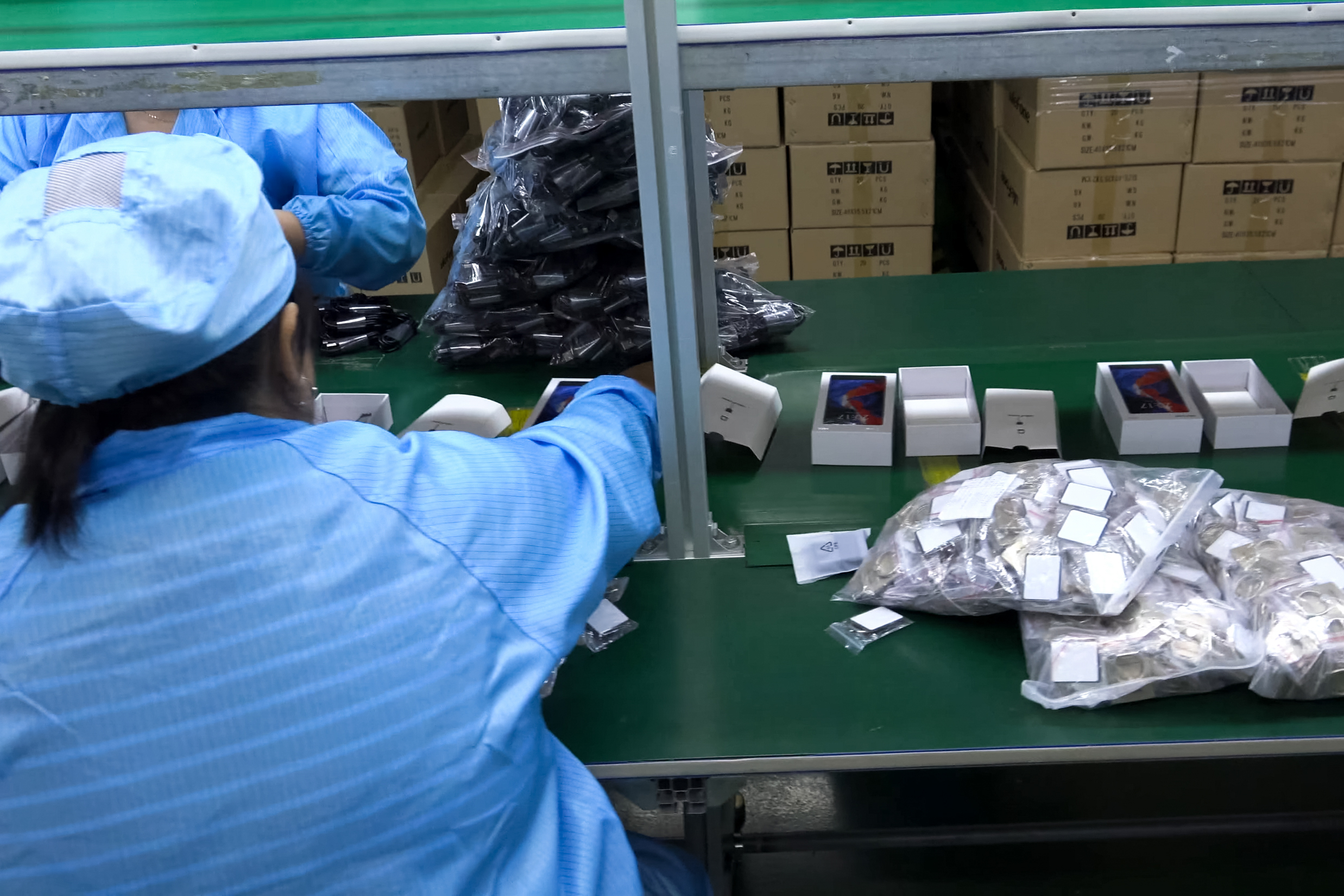
maroke/ Shutter Stock
Several videos shared online by Foxconn workers in Zhengzhou, Henan province, depict workers fainting due to long hours of overtime work in October. Given the demanding schedules, workers asked,
“Who can endure 20 consecutive days of night shifts without any rest?”
On 8 October, a video on Douyin described a female worker being taken to the hospital after days of night work. Three days later, another video (which has since been removed) reported that two workers fainted in the F area of the Foxconn facility. Additionally, a video uploaded on 12 October (also removed) reported another incident of a worker fainting in a workshop. China Labour Bulletin was unable to verify whether these reported cases overlapped.
Foxconn factories in Henan have significantly extended working hours following the release of the new iPhone models, leading many workers to believe this contributed to recent fainting incidents. A labour contractor on Douyin mentioned that the production lines for the iPhone 16 Pro and Pro Max would continue operating on Saturdays and Sundays, resulting in workers facing 20 consecutive workdays before receiving a single day off. While the extended workweek promised higher pay, employees reported that the reduction in rest days made their work more physically demanding and pushed them to their limits.
Similar arrangements for longer working hours were also reported at Foxconn factories in Shenzhen, although no fainting incidents have been reported. Shenzhen Foxconn workers said with a sense of humor:
“If you ask me whether it is good or not to work in the (Foxconn) factory, I would definitely say yes it is good. However, if you’re considering to come and work in this factory, I advise against it, unless you can handle the demanding environment...I work for 20 days straight and then have one day off, and I am finding it difficult to manage the day shift. How are you all coping with the night shift?”

LuYag/ Shutter Stock
Henan Foxconn workers indicated that their daily rest periods were shortened, and mealtime was cut from one hour to just half an hour. Night shift workers warned others against joining the factories, describing the work as unbearable, with shifts running from midnight to 7 a.m. without any breaks.
After anonymous complaints were submitted, some sections of the Foxconn factory in Zhengzhou temporarily reverted to a weekly rest day system for one week, probably in response to the unreasonably high working hours and the fainting incidents.
The working hours at Foxconn system during peak seasons may violate labour laws in China
Foxconn's "work 20 consecutive days to get one rest day" schedule contradicts the Labour Law in China. Article 38 clearly states that employers must guarantee staff and workers at least one day off each week.
Additionally, the overtime hours under Foxconn's schedule significantly exceed the legal limits. Accounts from multiple workers indicate that many worked over 300 hours in October, with overtime ranging from 125 to over 150 hours (sources 1, 2, 3 and 4). This overtime is nearly four times greater than what Article 41 of the Labour Law allows, which stipulates that total overtime in a month should not exceed 36 hours.
In an extreme case, a worker reported working 30 days in October with only one day off. This worker not only worked on scheduled rest days but also had a minimum daily working time of 10.5 hours, which surpasses the legally permitted working hours. The relatively low average hourly wage of around 25.6 yuan significantly pushes workers to work excessively long hours.

Photo: A record showing overtime of 151 hours was uploaded by a Foxconn worker (Source: Douyin)
A recent report by China Labour Bulletin highlighted the widespread issue of excessively long working hours in China’s manufacturing sector. This situation has led to a tragic case of overwork-related death at the Qisda electronics factory in Suzhou, Jiangsu, in 2023. The 23-year-old migrant worker Xiao Xu died after working 13 consecutive night shifts. The company's management has communicated with the China Labour Bulletin regarding this case.
CLB emphasises the need for official unions to represent workers in factories and to ensure a working environment that adheres to labour laws and protects workers' health.
In the case of Foxconn, enterprise unions should negotiate with management for a reasonable living wage and acceptable working hours, particularly during peak seasons when working hours tend to increase significantly. The management at Foxconn's Zhengzhou facility should not use the rise in production orders as a justification for offering low wages and enforcing illegal, extended working hours that jeopardise workers' health. In fact, as the primary buyer of Foxconn's products, Apple has a corporate social responsibility to ensure that working conditions in their factories comply with local labour laws.
